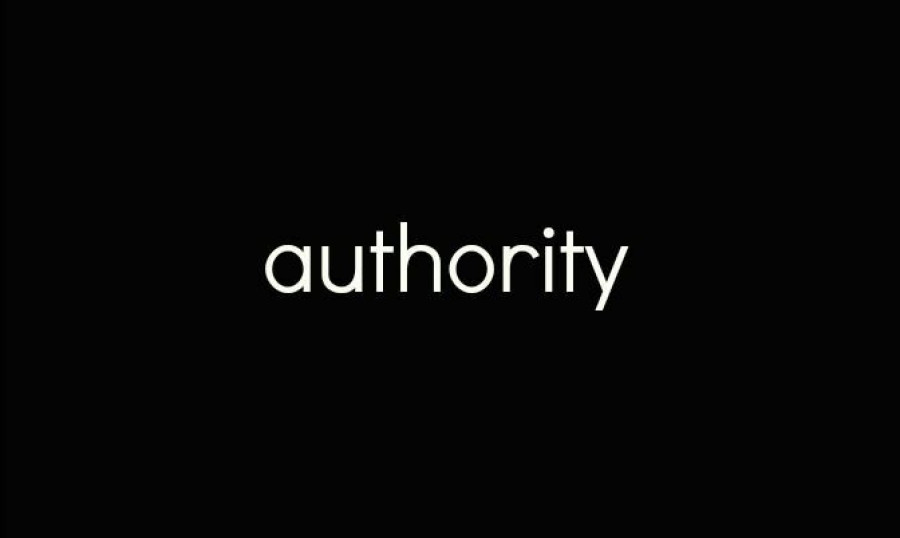First, let us begin with an understanding of two fundamental perspectives for viewing authority: (1)SPIRITUAL AUTHORITYis inherent in Jesus Christ our Lord and Savior; His authority comes from God the Father (Matthew 28:18). (2)SECULAR AUTHORITY is inherent in human beings and enabled by tens of thousands of human laws.
Ironically, one of the great gifts from God to human beings for the formulation of just nations is human authority, enabled by the authority inherent in Jesus Christ.Notwithstanding these two distinct perspectives on authority our modern world resonates with the abuse of human authority.
There are many forms and levels of authority operating in the private, public, and religious sectors of our lives. God in His infinite wisdom has prearranged a hierarchy of authority to provide us with structured relationships with our earthly authorities, earthly institutions, and Him.
Jesus Christ is the appointed head of the Christian church. To governments, He gave authority over their citizens; to ancient Israel, He gave authority to be an example to nations; to the husband, to be the head of the family, and to parents, to be head of the children. When we adhere to God’s prearranged hierarchical authorities, our lives radiate peace, harmony, and stability among families and nations (Matthew 16:18, 28:8; Romans 13:1; Ephesians 5:22–24, 6:1–3).
It is also critical to note that God has set the limits of human authority. God in His infinite wisdom did not give human beings dominion over each other (Genesis 1:26). The Bible refers to God as a sovereign God who possesses supreme authority. Matthew enlightens: “And Jesus came and spoke to them, saying, ‘All authority has been given to me in heaven and on earth’ ” (Matthew 28:18 NKJV).
The prophet Jeremiah wrote: “O Lord, correct me, but with justice; Not in Your anger, lest You bring me to nothing” (Jeremiah 10:24 NKJV) (circa 622 BCE). “And God spoke all these words, saying: I am the Lord you God” (Exodus 20:1–2 NKJV). Despite God’s admonishment, nations have dominated other nations, and human beings have dominated other human beings to the injury of God’s creation, in a repeat of history.
The autocratic leaders of the ancient world held absolute power and authority over their kingdoms. The governments of modern Western nations have decentralized power and authority; this demonstrates that progressive governments recognize the need for various levels and limits to human authority.
The nature of governmental authority is critical in the twenty–first century, and so the scripture admonishes: “Let every soul be subject to the governing authorities. For there is no authority except from God, and the authorities that exist are appointed by God” (Romans 13:1 NKJV). The book of Proverbs advises: “When the righteous are in authority, the people rejoice; But when a wicked man rules, the people groan” (Proverbs 29:2 NKJV).
God foreknew that ultimate human authority would pose an inherent danger to authority, itself and to those who are subject to authority. The essential exercise of authority begins with righteousness, and righteousness comes from God, through right relationship with Him and obedience to His Word.
The book of Romans, chapter thirteen, verse one, points us to God’s theocracy, in which He leads through authorities; He appoints human authorities under His guidance. The word theocracy originates from the Greek word “theokratia.” The root words of theocracy are Theos (God) and kratein (to rule). Combined, they mean “rule by the deity.” The leader appoints a cabinet to serve the people, and human authority can thus effectively operate under divine appointment by God, subject to His will.
Estranged from the will of God, the authority of His appointed agents will fall short of the ideal aim of service to humanity. Furthermore, His transcendent authority must be active in every facet of human endeavor to realize just societies and nations. A common spiritual purpose on earth intrinsically links all humanity, regardless of color, race, culture, language, nationality, or religion.
The whole of humanity benefits when we embrace every opportunity to elevate othersaccording to God’s divine plan for our existence. The church is God’s agent with the moral authority to speak on behalf of its founder Jesus Christ. The Holy Bible provides explicit written instructions for our edification, and more significantly, for our survival.
When we face personal, family, and national crises, we often acknowledge God’s existence, but we neglect to avail ourselves to His guidance when everything seems to be going well for our nation and for ourselves. We often deny God an invitation as a key subject matter expert (SME) in our decision–making. His seat is vacant at the family table, corporate boardrooms, and at major national and international forums, when things are going well.
In the book of Jeremiah, God invites His people: “Call to Me, and I will answer you, and show you great and mighty, things which you do not know” (Jeremiah 33:3 NKJV). Without God’s intervention in all of our plans, there is no guarantee of peace, safety, or security of nations. With such clear scriptural admonishment, why would we not seek His trustworthy guidance in every human endeavor as a proactive strategy?
He has given us unfettered access to His infinite knowledge, wisdom, and understanding through His Word and through the teachings of His Son Jesus Christ. There are those in authority who have an earnest desire to exercise authority for our betterment, but how sufficient is human authority alone, unaided by God’s authority? Have human beings in the past six thousand years of recorded history demonstrated insufficiency of human authority?
— Human authority is an unmerited gift from God.
Unless otherwise expressed, the views expressed in the opinion column are not endorsed by the editors or publishers of ByBlacks.com









